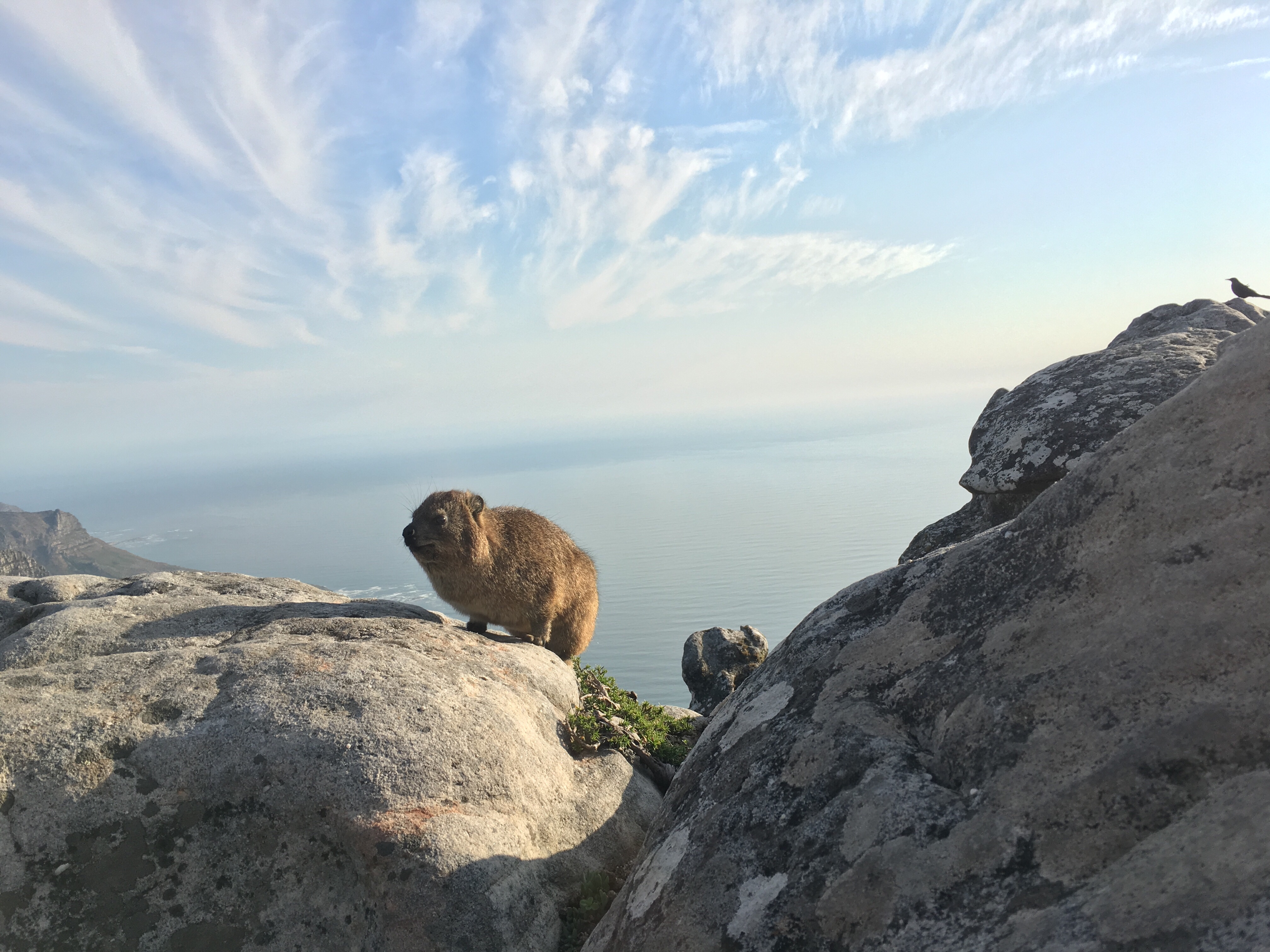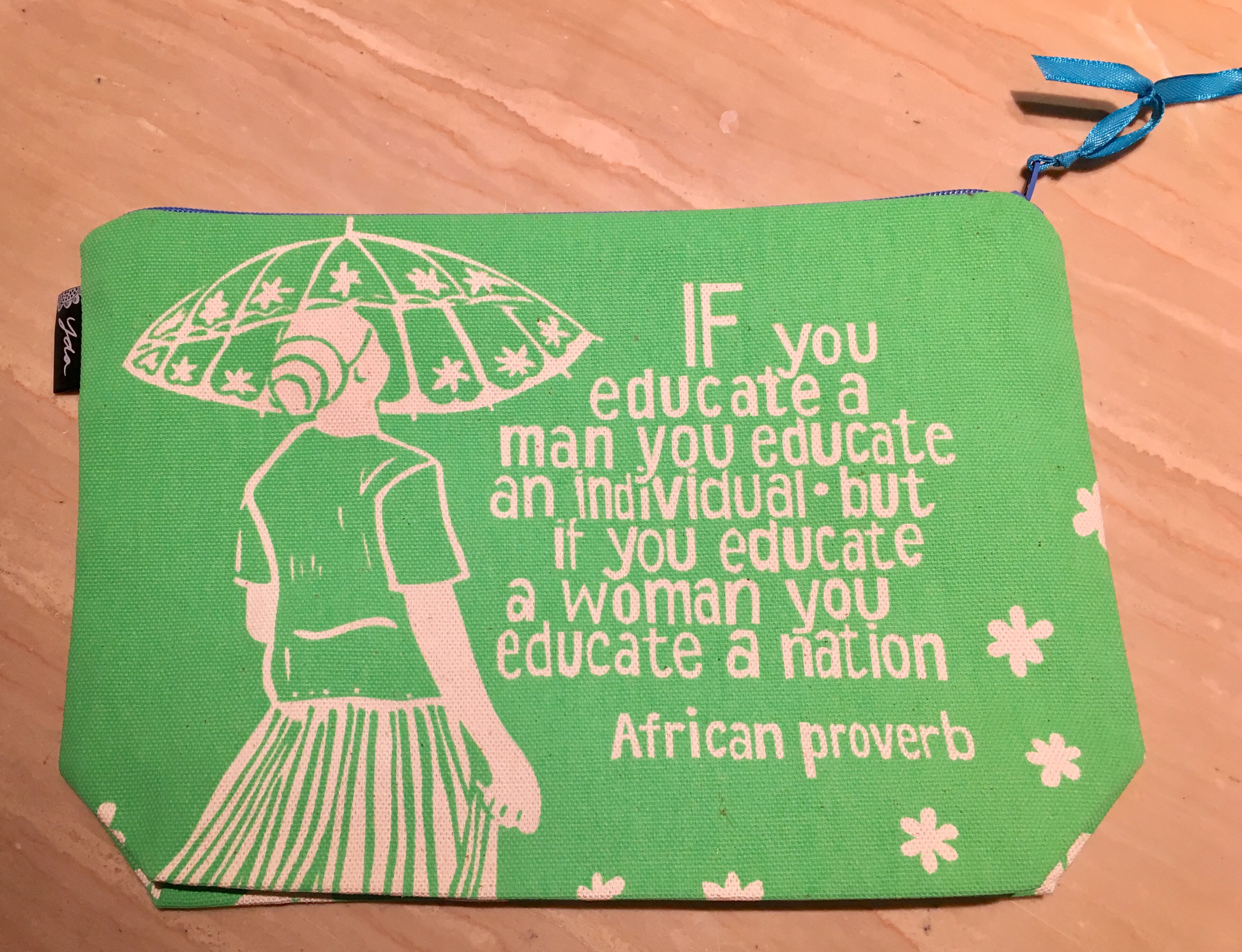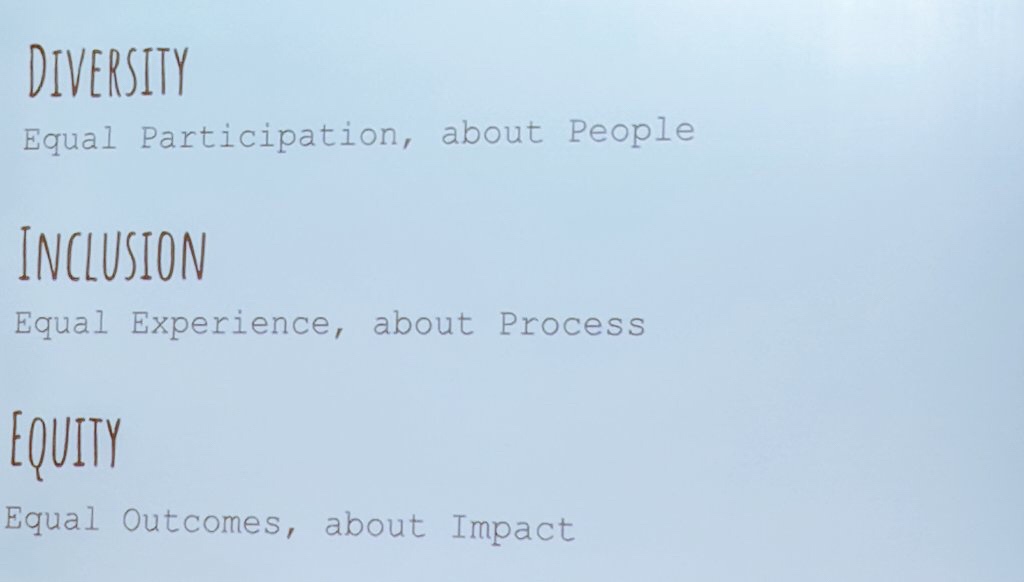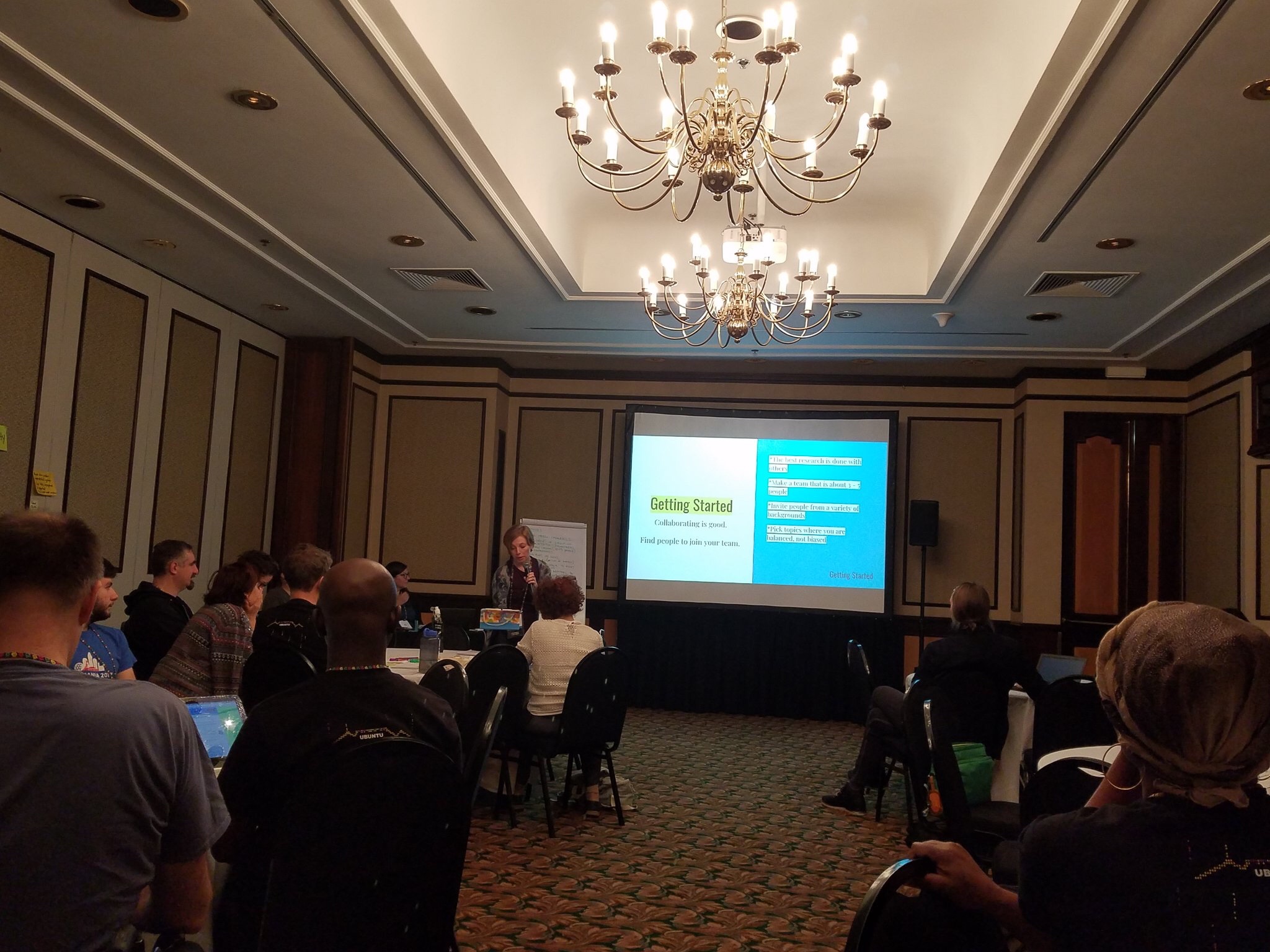
A couple weeks ago, I started an adventure I never imagined I would. I traveled to Cape Town, South Africa to attend Wikimania 2018.
The past year has been amazing, getting to travel the world for the sake of free knowledge (1, 2, 3, 4). For this trip, I applied for a scholarship early and thankfully, I received a scholarship. This scholarship was for conference attendance and room and board, which made the trip much more attainable.
I left St. Louis midday on a Monday, flying through Atlanta and Paris before arriving in Cape Town late Tuesday night. I was optimistic about my ability to be bright-eyed and bushy-tailed (awake and aware) Wednesday morning for the start of Learning Days, but I think I overestimated my abilities.
After a very important hunt for coffee, I arrived 15 minutes late for Learning Days (yikes! Apologies, friends!). Learning days is a pre-conference set for upcoming and emerging leaders in the Wikimedia movement. It gathers us together to learn best practices and collaborate on challenges in the communities. I can personally say I learned loads from the other attendees just during discussions and our conversations between sessions. This is my absolutely favorite part about attending conferences in the Wikimedia movement – the natural way in which you learn so much just by talking to people. For the content that really stuck with me from Learning Days, let’s just say I have pages and pages of notes! I’ll try to keep my summary to just a few things.

The first piece that is highly important that I think everyone should continually practice: listening. Listening can be powerful and listening can be dangerous. Let me explain. Through listening, one can learn, build empathy, connection, etc. Through listening, people can also be tricked.
You see, it is a very dangerous thing to listen. If one listens one may be convinced; and a man who allows himself to be convinced by an argument is a thoroughly unreasonable person.
-Oscar Wilde, An Ideal Husband
Critical listening is, well, critical. Exercise your listening skills by doing the following:
- Be present. Don’t think of other things or tinker on your phone while someone else is talking. Give them your attention and show that in your body language (eye contact, turn your body toward them, ignore your phone, etc.)
- Don’t be quick to solution. We are creatures who like to solve problems, but maybe now isn’t the time, or the person just wants a sympathetic ear. Just listen.
- Ask clarifying questions. Maybe you don’t know a detail or you want to make sure you’re fulling understanding, so ask. It’ll show you’re engaged and want to know more.
There are three types of listening:
Listening to win: listening to find information you can use to aid you in some way.
Listening to fix: listening to develop a solution to the issue at hand.
Listening to learn: listening to know more. This is the most engaging.
We learned about these different types of listening and how to recognize them in ourselves. We did this for the sake of community listening. To practice these we employed them during an exercise with a technique called Collective Problem Solving. We discussed community needs we had and assigned each need to a table. We then got to pick which table we joined. The tables were developed out of the needs we discussed, which included: community health, resources, volunteer retention, and cross-collaboration within the open movement.
During the Collective Problem Solving, we practiced the stages of good listening. First, we were listening to understand, and responding with clarifying questions. Then we asked deeper questions to get deeper understanding. Then we proposed solutions and worked collaboratively to understand the deeper problem and develop a solution. The solution to our table’s problem was so simple, but hugely impactful to the community health and could even reduce volunteer burnout, because the debates required over this topic would thus be reduced! Listening might just be the solution to world peace, or Wiki-peace, but for now, just start small and be a good listener.

We also talked about the differences among the scope of diversity, inclusion and equity. While the definitions above do not encompass the differences among these concepts culturally or linguistically, they do give us a starting point to help us recognize who is here and how they are involved. Diversity is equal participation and is about people. Inclusion is equal experience and about the process. Equity is equal outcomes and about the impact. These concepts were underlying themes during the whole of Wikimania. I’ll go into more detail later.
The next part that really stood out to me was storytelling for projects. This is something everyone needs to do because we want to have people engaged and caring about our projects. This framework tells you how to structure your story to make a good story that is impactful. Follow the ABCD framework:
- Attention – get the attention of the audience
- Because – tell them why it matters
- Content – share the story
- Do – call to action
Did you know the use of the word because increases engagement by more than 30%? Make your project stand out by telling the story and why it matters. You know your project, but others don’t. Practice storytelling for your next project and see what impact it has on engagement or acceptance. Even do it on a smaller level in daily communication and see how things change.

During Learning Days, I presented about Surveys and how to properly design them to get the most out of them. Learning how to develop surveys is a highly important skill because when done correctly, it can give you the information you need. Note, I said information you need here instead of information you want. That is an issue I see with so many surveys and research studies. People have an idea of what they want to know beforehand and unwittingly ask leading or biased questions. This will not get the clean information and lead you into developing solutions for the community that they don’t really need! Check out my slides and the handout on Commons to get your survey is on the right track, and even to find out if a survey is the right tool for the job. Feel free to share and contact me if you would like some survey or methodological support for your project.
Oh, I hinted about bias in the paragraph above. I gave a lightning talk about bias. If you ever go to an event, go to the lightning talks. They’re always great because you can learn so much about the rest of the wiki community in such a short period of time.
The next thing we did during learning days that really stood out to me was the final activity on the second day. It stood out to me because I am an analytical thinker. Analytical thinkers are great at big picture thinking as well as seeing the complexities and nuance in a sea of grey. I cannot think of the name, but the activity was the one where there are two words placed on opposite sides of the room. You have to pick one, or a point in the middle. I dislike these activities because I generally think for the whole and not for myself. This is great because people like me help the NGOs of the world do amazing work, but it’s bad for activities like this because I cannot stop analyzing the situations in which one concept would be more important than the other, and visa versa. The world is less black and white but more grey, and often, ‘it depends’ is an appropriate response for this activity.
With that being said, I highly enjoyed Learning Days and hope to see it continue. I do hope, however, that some sort of cohort model can be developed so attendees can connect over a period of time before the actual Learning Days event and even after. I find the issue with in-person events is there is great momentum and excitement while we’re all together, but then we go back to our lives afterward without a clear plan to continue the enthusiasm.
Speaking of enthusiasm, you can clearly tell I am excited about this event because I have so much to say. The main event hasn’t even started at this point in my narrative, and this post is already pretty long, so I’m going to make it into two parts. Come back tomorrow for my reflections on Wikimania 2018. See you then.